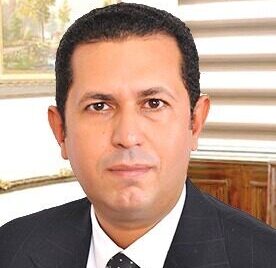Egypt is back to playing its pivotal role in Africa after years of being out in the cold. Africans now see Egypt as the closest to them and the first supporter of their issues. The African turnaround towards Egypt has not come out of nowhere. Rather, it is the culmination of extensive diplomatic efforts to revive Egypt’s African role since President Abdel Fattah El Sisi assumed power in 2014.
The leadership has made African relations a priority issue, seeking to restore Egypt’s role as a leading African nation by participating more actively in the political and economic spheres in Africa. Since assuming power, President Sisi has regularly attended the annual African Union (AU) summits, visited several African countries, and received African leaders in Cairo.
Egypt has also been keen to offer all possible support for African countries in times of crisis. Clear evidence of this was during the Covid-19 pandemic when Egypt secured vaccines for its African neighbours. In recent years, Egypt has also fostered co-operation and partnership with African countries, especially in the areas of energy, infrastructure development, agriculture and food security.
Since 2014, President Sisi saw the importance of making a change in Egyptian diplomacy and Africa was at the forefront of this change, which is not solely based on Egypt’s strategic interests. Rather, it rests on a deeper framework to advance integration among the countries of the continent and build common awareness of the continent’s issues and challenges.
Moreover, our African brothers have realised their need for someone who can voice the problems and needs of the African continent to the whole world. In this context, Egypt was elected non-permanent member on the UN Security Council on behalf of Africa in 2016-2017. Egypt also chaired the African Union in 2019-2020. During Egypt’s two-year presidency of the AU, several initiatives relating to sustainable economic development in Africa were launched, such as the African Continental Free Trade Area (AfCFTA) agreement at the AU summit in Niger in 2019.
The AfCFTA forms the world’s largest free trade area by creating a single market for goods and services of almost 1.3 billion people across Africa and deepening the economic integration of Africa.
Egypt also took over the leadership of COMESA over the past two years – a critical time that witnessed global economic crises resulting from Covid-19 and the war in Ukraine. However, it has succeeded with the introduction of the regional industrial integration initiative – within the framework of COMESA’s manufacturing strategy which aims to deepen industrial production in the whole of Africa.
On handing over the COMESA chairmanship to Zambia this month, President Abdel Fattah El Sisi announced Egypt’s candidacy for the African Peace and Security Council for the term 2024-2026. Egypt also assumed the leadership of the African Union Development Agency – commonly known as NEPAD – for the next two years.
Egypt could have never assumed these posts without gaining the confidence of Africans. Herein lies the importance of the latest African tour by President Sisi made to Angola, Zambia and Mozambique. It was the first time for an Egyptian president to visit these three countries. The visit underlined the importance that Egypt places on its relations with all African nations.
Mohamed Fahmy is the editor-in-chief
of The Egyptian Gazette and
Egyptian Mail newspapers






Discussion about this post